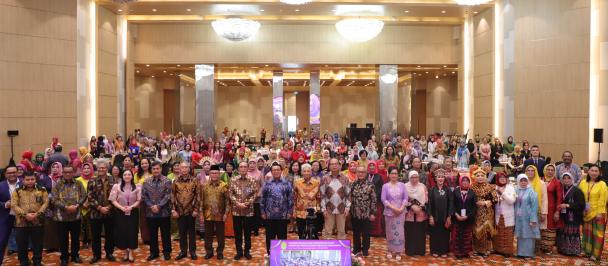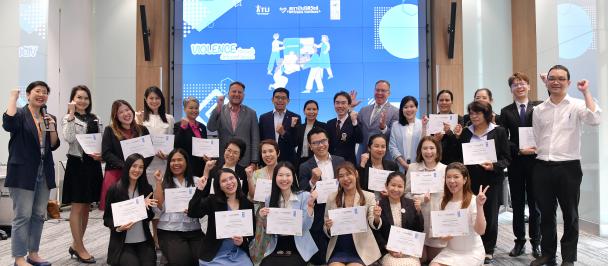Innovative approaches to advance efficient judicial systems in Asia and the Pacific
December 14, 2023

Since 2016, the world has witnessed a global rule of law recession and today, societies are confronted with accelerated challenges and unprecedented crises. An important feature of the persistent threats to the freedom of people rests with the rise of authoritarian trends worldwide, with the most vulnerable populations experiencing the negative effects of justice systems failing to meet their needs[i].
Over 6 billion people live in countries where the rule of law is declining[ii], including those who are excluded from opportunities provided by the law. Asia and the Pacific is no exception. The region grapples with substantial challenges, including disinformation, limited access to justice for vulnerable groups, and threats to judicial independence. Traditional solutions to tackle curtailing access to justice are no longer enough.
In attempting to address these challenges effectively, three innovative approaches have emerged from the "Evolving Justice: ASEAN Judges Conference" organized by the UNDP Judicial Integrity Network in ASEAN and the Thailand Court of Justice with support from the U.S. Department of State, held on October 5-6 in Bangkok, Thailand.
People-Centred and Gender-Sensitive Judiciaries
In response to inclusivity concerns, the Thailand Court of Justice recognized the need for more user-friendly online services. To rectify this, the Court developed an e-filing system accessible to the visually impaired and devoid of legal jargon. The success of the initiative prompted users to share their positive experiences on social media, resulting in an upsurge in online complaint submissions. Courts play a critical role in driving gender-sensitive judiciaries in the region to leave no one behind. Examples of gender-sensitive courts include Nepal, where the National Judicial Academy institutionalized a gender justice training curriculum, and the Philippines, where 5% of the judiciary budget is dedicated to gender initiatives.
Leveraging Technology to Reduce Access Barriers
The global demand for technology in the justice sector is expanding, and digital solutions can be a powerful tool to support the effectiveness of the courts[iii]. The Philippines Court has implemented various technologies, including e-filing and online kiosks. Video conferencing has proved invaluable support, allowing remote participation in court proceedings for incarcerated individuals and overseas workers. However, while chatbots have been implemented in various judiciaries to provide general information, artificial intelligence has yet to demonstrate its reliability in providing legal advice for justice seekers, as experimented by the Singapore Judiciary. When integrating technology in the courts, it remains crucial to prioritize inclusive design and maintain the human element to bridge the digital divide while respecting fundamental rights.
Upholding Environmental Justice
The increasing frequency of environmental disasters has led to a surge in environmental adjudication. Thailand, which lacks specialized environmental litigation, has initiated addressing the issue by developing a Draft of the Environmental Procedure Act. With gloomy projections indicating that over 1 billion people could face displacement by 2050 due to the impacts of climate change[iv], legal issues related to the protection of the environment, such as disputes related to pollution, water access, and land ownership, are expected to rise. In this context, a solution to uphold environmental justice in the region may come from establishing a specialized tribunal for ASEAN to seek timely and effective justice for restoring ecological harm.
As the legal landscape in the region continues to evolve, more open, innovative, and inclusive approaches can introduce positive change and inspire public institutions to deliver fair justice services to serve their citizens' needs better. With support from the Bureau of International Narcotics and Law Enforcement Affairs (INL) of the U.S. Department of State, UNDP will continue to work with partners to foster inclusivity and encourage the exchange of best practices among regional countries to strengthen the rule of law and protect human rights.
Stefano Pighin
Communication and Partnerships Officer, UNDP Bangkok Regional Hub
About the Judicial Integrity Network in ASEAN
JIN ASEAN is the UNDP’s project for promoting court excellence in the ASEAN region, funded by the U.S. Department of State's Bureau of International Narcotics and Law Enforcement Affairs (INL), which supports target countries in pursuing judicial reforms, focusing particularly on transparency, accountability, integrity, promoting knowledge exchange and peer support.

 Locations
Locations



